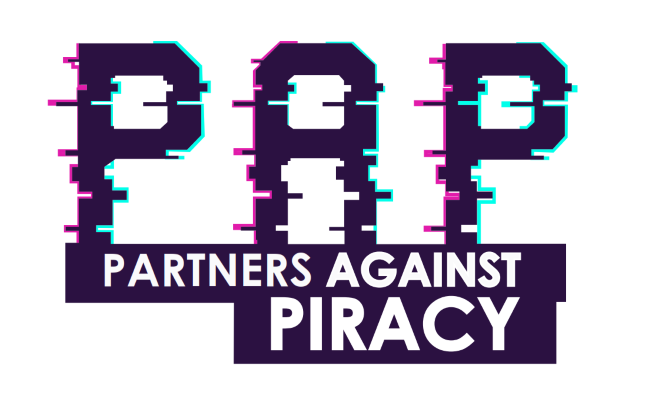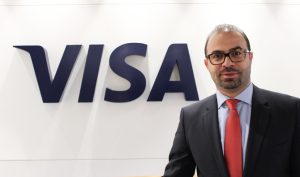
- Safeguarding Creativity: The Urgent Fight Against Content Piracy in Africa’s Creative Economy
A nation’s creative expression is more than just entertainment; it’s a reflection of its identity, culture, and values. Art, music, film, and other creative works allow a country to tell its story and shape how it’s seen on the global stage. But content piracy—an act of digital theft—threatens to silence this voice by robbing creators of their rightful earnings and recognition.
Producers, broadcasters, platforms, telecom operators, and other industry players who gathered last month for the MIP Africa event at the Cape Town International Convention Centre unanimously agreed that digital piracy is not only an existential threat to the creative economy but also undermines the creation of local content.
 Content piracy involves the unauthorized acquisition, sharing, or sale of copyrighted material. Experts at the MIP Africa event expressed concerns that the ongoing efforts to curb piracy are being undermined by outdated and ineffective laws, allowing perpetrators to continue stealing and distributing illegal content with minimal consequences.
Content piracy involves the unauthorized acquisition, sharing, or sale of copyrighted material. Experts at the MIP Africa event expressed concerns that the ongoing efforts to curb piracy are being undermined by outdated and ineffective laws, allowing perpetrators to continue stealing and distributing illegal content with minimal consequences.
Outdated laws make it difficult to prosecute pirates, and when they are prosecuted, penalties are often so lenient they fail to deter future offenses. In many African countries, law enforcement and even the judiciary don’t fully grasp the scale of piracy as a criminal enterprise—one that generates enormous profits for pirates while devastating the industries that support creatives.
A nation’s creative output is integral to its identity. In fact, art and creative works help define a people as a nation. Piracy, however, is a form of digital theft, depriving creators and rights holders of fair compensation for their work.
Partners Against Piracy (PAP) estimates that online piracy costs Kenya’s creative economy approximately Ksh 252 million daily. This also impacts the government, which loses millions in potential tax revenue.
 In South Africa, the cultural and creative industries contribute at least 3% to the country’s GDP, a figure comparable to that of the agricultural sector. However, content piracy poses a significant threat to this vital industry, undermining its economic contributions and stifling creativity and innovation.
In South Africa, the cultural and creative industries contribute at least 3% to the country’s GDP, a figure comparable to that of the agricultural sector. However, content piracy poses a significant threat to this vital industry, undermining its economic contributions and stifling creativity and innovation.
For example, Kenya’s Cyber Crime Act does not mandate Internet Backbone Providers (IBPs) to actively prevent access to infringing and illegal domains. As technology evolves, we must continuously update our laws to outsmart digital pirates.
Thandi Ramathesele, Managing Director at Izwi Multimedia, noted during the MIP Africa event that many pirates mistakenly believe it’s acceptable to steal content from large broadcasters because they assume these companies have plenty of money. There’s also a harmful misconception that creative work isn’t a “real”profession, like law or medicine, which couldn’t be further from the truth.

A lack of understanding within the creative community about protecting their intellectual property further complicates the situation. More education is needed on how creators can safeguard their work, monetize it, and understand the rights and laws that protect them.
Piracy affects the entire film and television production ecosystem, from producers and directors to writers, cast, and crew. It’s not just about stealing from big broadcasters; piracy directly harms creatives, silencing their voices and robbing them of their livelihoods. Many of our artists pass away without ever earning what they deserve from their work.
Pirates also deceive consumers by setting up illegal streaming sites that appear legitimate, charging low subscription fees to access stolen content. These operations don’t pay for the content they steal, but instead profit from it, while content creators see none of the revenue.
 To combat this, we need widespread education for creatives on protecting their work and a public campaign to raise awareness about the damage piracy causes. We create content because we love engaging with audiences, but when our work is stolen, it leads to unemployment, stifles youth development, and erodes the value chain. By the time people realize their favorite content is gone, it may be too late.
To combat this, we need widespread education for creatives on protecting their work and a public campaign to raise awareness about the damage piracy causes. We create content because we love engaging with audiences, but when our work is stolen, it leads to unemployment, stifles youth development, and erodes the value chain. By the time people realize their favorite content is gone, it may be too late.
 This issue requires a societal shift. Piracy isn’t “sharing”; it’s “stealing.”Governments, law enforcement, legislators, and the justice system must work closely with the film industry to combat this crime, which impacts not only the national economy but also individual livelihoods.
This issue requires a societal shift. Piracy isn’t “sharing”; it’s “stealing.”Governments, law enforcement, legislators, and the justice system must work closely with the film industry to combat this crime, which impacts not only the national economy but also individual livelihoods.
- The writer is the Managing Director, MultiChoice Kenya.






